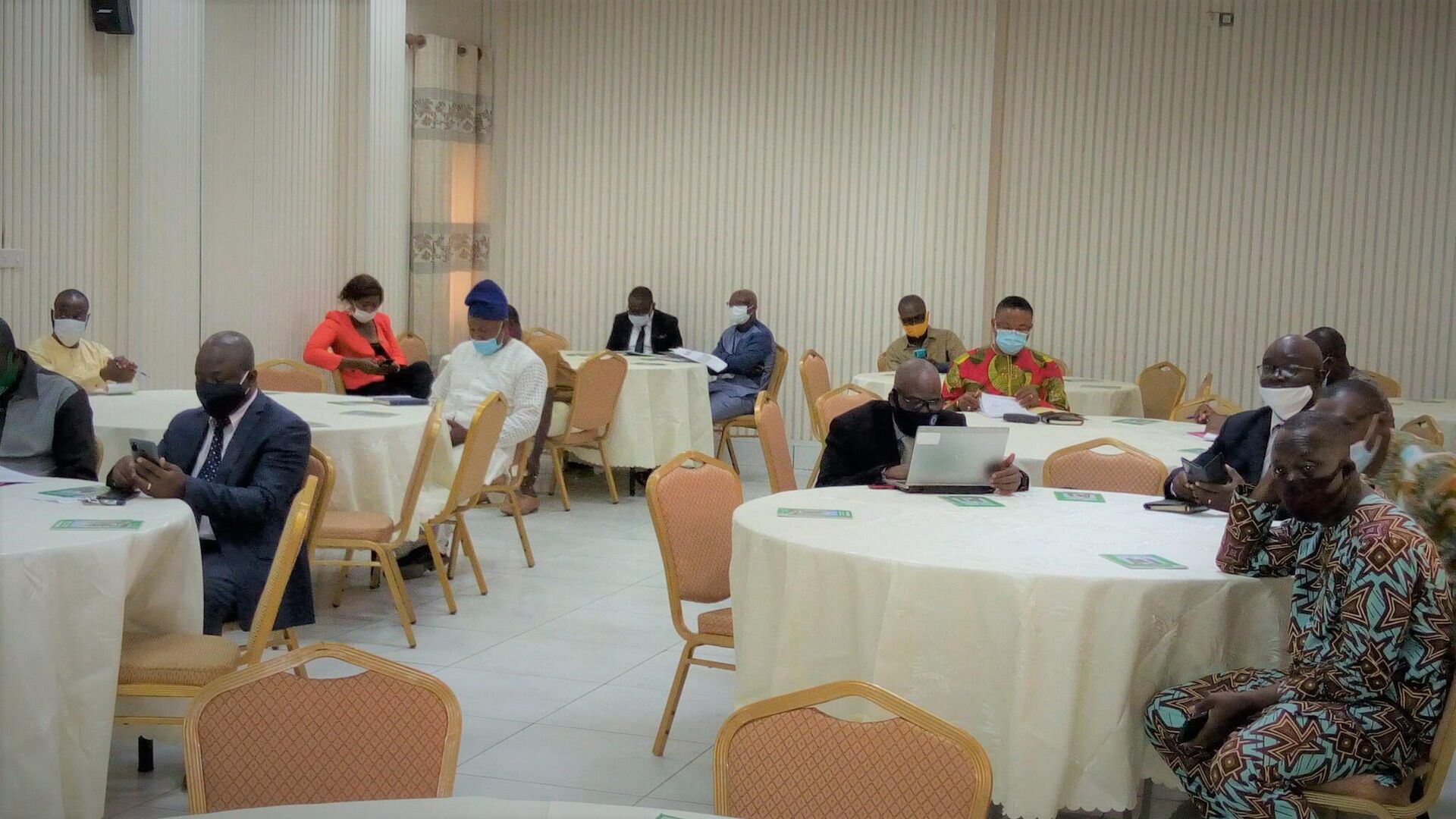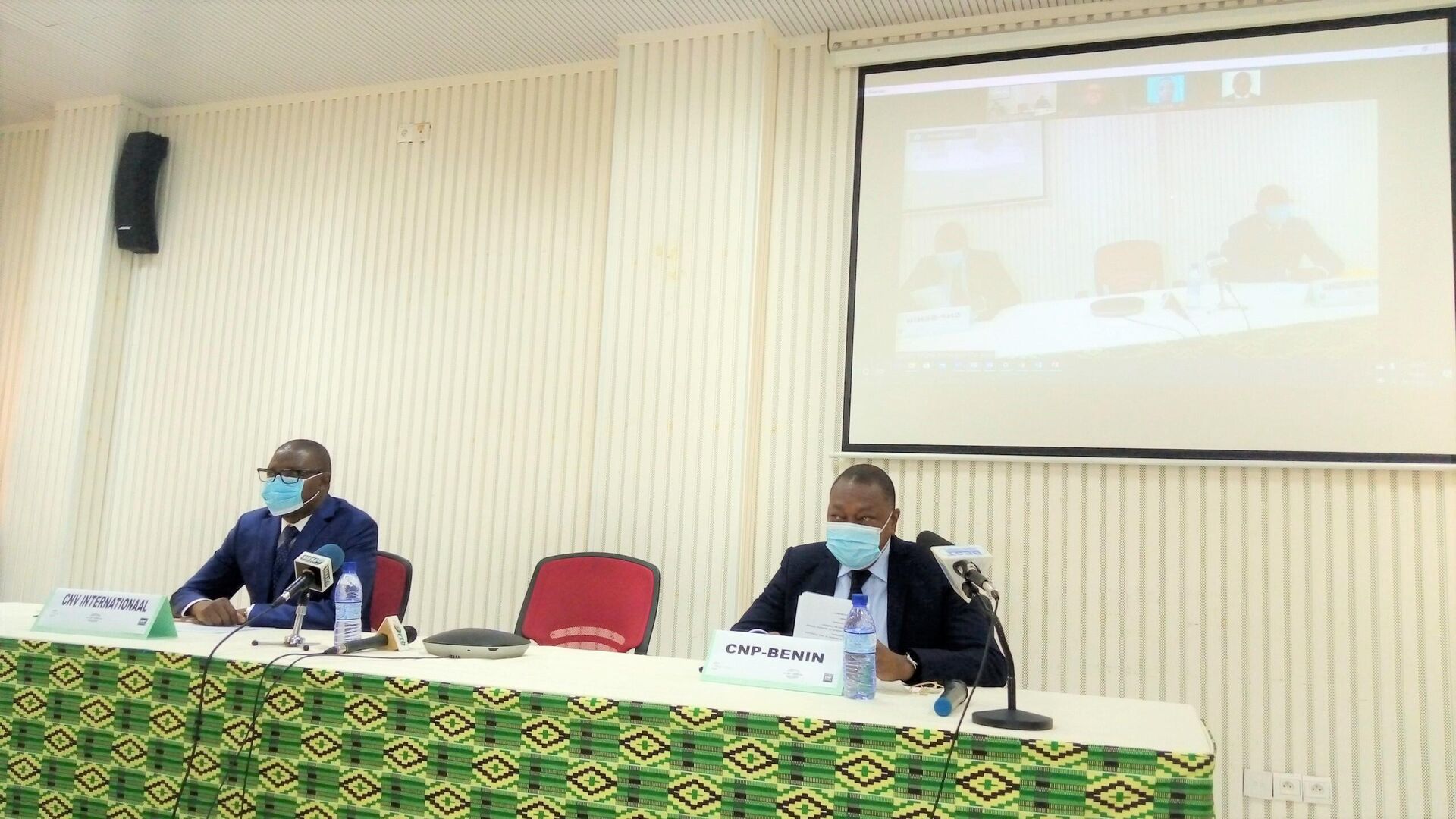

Revealing psychosocial effects of Covid-19 on workers
The CNPB, Benin’s umbrella employers' organisation, has commissioned an in-depth study of the psychosocial impact of Covid-19 on employees. The aim of this study is to determine the consequences on productivity and what can be done to minimize the negative effects as much as possible. 1400 private sector companies were approached to answer the research questions. On Tuesday December 29, the CNPB organised a workshop to present the results and to agree what next steps can be taken. This study was supported by DECP in cooperation with CNV Internationaal.
Mr. Grégoire O. Ballaro, research leader of the Ya Salam agency affiliated with the University of Cotonou, shared his experiences with the more than 30 guests from the business community and the government. He proved that economy has changed dramatically during the pandemic over the last year.
Indeed, since last year, humanity has been in a race against the Covid-19 pandemic. The world of work has been so affected that working conditions have changed. The repercussions are felt particularly at the level of "occupational safety and health", said Mr. Uzziel Twagilimana, resident representative of trade union CNV Internationaal in Benin. According to him, "it is therefore appropriate that the CNP-Benin took the initiative to undertake this investigation on the psycho-social consequences of Covid-19 on the employees who are the primary resources of a company" . Similarly, the latter, Eustache Kotingan, interim president of the CNP-Benin, believes that a job had to be done. This, in order to "measure the psychological, anthropological and socio-cultural impacts that this crisis can have on companies".
For him, this research is of paramount importance. This, due to the fact that the working environment is "confronted with various social risks such as illness, accidents, death, and ageing". Moreover, this document, which will be validated, recalls Mr. Eustache Kotingan, "is called upon to become a real rudder leading us to build solid foundations on which our system of social cover adapted to the conditions and specificities of workers will be based".
Mr. Balaro concluded: “The present study made it possible to quantify, beyond the economic vulnerability of companies, the psychological vulnerability of workers as well as the psychological, anthropological and social impacts that this crisis can cause. Based on these vulnerabilities identified following the pandemic, the study also made it possible to explore and propose resilience measures for both companies and workers for a more rational anticipatory management of the crisis”.
It is now up to the social partners to jointly take concrete steps as part of an evolving social dialogue.
